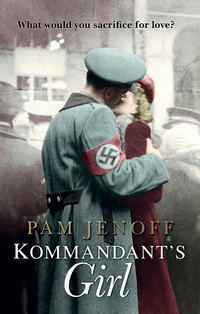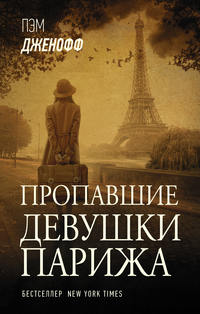
Полная версия
The Lost Girls Of Paris

From the author of the runaway bestseller The Orphan’s Tale comes a remarkable story of friendship and courage centered around three women and a ring of female secret agents during World War II.
1946, Manhattan
One morning while passing through Grand Central Terminal on her way to work, Grace Healey finds an abandoned suitcase tucked beneath a bench. Unable to resist her own curiosity, Grace opens the suitcase, where she discovers a dozen photographs—each of a different woman. In a moment of impulse, Grace takes the photographs and quickly leaves the station.
Grace soon learns that the suitcase belonged to a woman named Eleanor Trigg, leader of a network of female secret agents who were deployed out of London during the war. Twelve of these women were sent to Occupied Europe as couriers and radio operators to aid the resistance, but they never returned home, their fates a mystery. Setting out to learn the truth behind the women in the photographs, Grace finds herself drawn to a young mother turned agent named Marie, whose daring mission overseas reveals a remarkable story of friendship, valor and betrayal.
Vividly rendered and inspired by true events, New York Times bestselling author Pam Jenoff shines a light on the incredible heroics of the brave women of the war and weaves a mesmerizing tale of courage, sisterhood and the great strength of women to survive in the hardest of circumstances.
PAM JENOFF is the author of several novels, including the phenomenal international bestseller The Orphan’s Tale, and Kommandant’s Girl, which was also an international bestseller and earned her a Quill Award nomination. Pam lives with her husband and three children near Philadelphia where, in addition to writing, she teaches law school.
Also by Pam Jenoff
Kommandant’s Girl
The Diplomat’s Wife
The Ambassador’s Daughter
The Winter Guest
The Last Embrace
The Orphan’s Tale
The Lost Girls of Paris
Pam Jenoff

Copyright

An imprint of HarperCollins Publishers Ltd
1 London Bridge Street
London SE1 9GF
First published in Great Britain by HQ in 2019
Copyright © Pam Jenoff 2019
Pam Jenoff asserts the moral right to be identified as the author of this work.
A catalogue record for this book is available from the British Library.
This novel is entirely a work of fiction. The names, characters and incidents portrayed in it are the work of the author’s imagination. Any resemblance to actual persons, living or dead, events or localities is entirely coincidental.
All rights reserved under International and Pan-American Copyright Conventions. By payment of the required fees, you have been granted the non-exclusive, non-transferable right to access and read the text of this e-book on-screen. No part of this text may be reproduced, transmitted, downloaded, decompiled, reverse engineered, or stored in or introduced into any information storage and retrieval system, in any form or by any means, whether electronic or mechanical, now known or hereinafter invented, without the express written permission of HarperCollins.
Ebook Edition © January 2019 ISBN: 9781474083195
Praise for The Lost Girls of Paris
‘Based on true events, The Lost Girls of Paris brings us three courageous women who braved constant danger to survive.’
Martha Hall Kelly, author of Lilac Girls
‘Fraught with danger, filled with mystery, and meticulously researched, a fascinating tale of the hidden women who helped to win the war.’
Lisa Wingate, author of Before We Were Yours
‘Eleanor Trigg and her girls are every bit as human as they are brave. I couldn’t put this down.’
Jessica Shattuck, author of The Women in the Castle
‘Pam Jenoff’s meticulous research and gorgeous historical world-building lift her books to must-buy status.
An intriguing mystery and a captivating heroine make The Lost Girls of Paris a read to savour!’
Kate Quinn, author of The Alice Network
For my family
Contents
Cover
Back Cover Text
About the Author
Booklist
Title Page
Copyright
Praise
Dedication
Quote
Chapter One
Chapter Two
Chapter Three
Chapter Four
Chapter Five
Chapter Six
Chapter Seven
Chapter Eight
Chapter Nine
Chapter Ten
Chapter Eleven
Chapter Twelve
Chapter Thirteen
Chapter Fourteen
Chapter Fifteen
Chapter Sixteen
Chapter Seventeen
Chapter Eighteen
Chapter Nineteen
Chapter Twenty
Chapter Twenty-One
Chapter Twenty-Two
Chapter Twenty-Three
Chapter Twenty-Four
Chapter Twenty-Five
Chapter Twenty-Six
Chapter Twenty-Seven
Chapter Twenty-Eight
Chapter Twenty-Nine
Chapter Thirty
Chapter Thirty-One
Chapter Thirty-Two
Author’s Note
Acknowledgments
Questions for Discussion
Extract
About the Publisher
“In wartime, truth is so precious that she should alwaysbe attended by a bodyguard of lies.”
—Winston Churchill
Chapter One
Grace
New York, 1946
If not for the second-worst mistake of Grace Healey’s life, she never would have found the suitcase.
At nine twenty on a Tuesday morning, Grace should have been headed south on the first of two buses she took to get downtown, commuting from the rooming house in Hell’s Kitchen to the Lower East Side office where she worked. And she was on her way to work. But she was nowhere near the neighborhood she had come to call home. Instead, she was racing south on Madison Avenue, corralling her corkscrew hair into a low knot. She quickly removed her coat, despite the chill, so she could take off her mint green cardigan. She didn’t want Frankie to notice it was the exact same one she had been wearing at work the previous day and question the unthinkable: whether she had gone home at all.
Grace paused to study herself in the window of a five-and-dime. She wished the store was open so she could buy some powder to hide the marks on her neck and sample a bit of perfume to conceal the stench of day-old brandy mixed with that delicious-but-wrong smell of Mark’s aftershave, which made her dizzy and ashamed with every inhale. A wino sat on the corner, moaning to himself in sleep. Looking at his gray, lifeless pallor, Grace felt a certain solidarity. From the adjacent alley came the banging on a trash can, a sound marching in time with the thudding in her own head. The whole city of New York seemed green and hungover. Or perhaps she was confusing it for herself.
Sharp gusts of February wind cut across Madison, causing the flags that hung from the skyscrapers above to whip furiously. An old crumpled newspaper danced along the gutter. Hearing the bells of Saint Agnes’s toll half past nine, Grace pressed on, her skin growing moist under her collar as she neared a run. Grand Central Terminal loomed hulking ahead. Just a bit farther and she could turn left on Forty-Second Street and catch an express bus downtown on Lexington.
But as she neared the intersection at Forty-Third, the street ahead was blocked. Police cars sat three across, cordoning off Madison and preventing anyone from going farther south. A car accident, Grace suspected at first, noting the black Studebaker, which sat jackknifed across the street, steam billowing from the hood. More cars clogged the Midtown streets than ever these days, jockeying for space with the buses and taxis and trucks making deliveries. There did not appear to be another vehicle involved, though. A lone ambulance sat at the corner. The medics did not rush about urgently, but stood leaning against the vehicle, smoking.
Grace started toward a policeman, whose paunchy face pushed up from the high collar of his uniform, navy with gold buttons. “Excuse me. Will the street be closed for long? I’m late for work.”
He looked out at her disdainfully from under the brim of his hat, as if despite all of the women who had worked dutifully in the factories to take the place of the men who had enlisted and gone overseas during the war, the notion of a woman holding a job was still laughable. “You can’t go this way,” he replied officiously. “And you won’t be able to anytime soon.”
“What happened?” she asked, but the policeman turned away. Grace took a step forward, craning to see.
“A woman was hit by a car and died,” a man in a flat wool cap beside her said.
Taking in the shattered windshield of the Studebaker, Grace suddenly felt sick. “Such a shame,” she managed finally.
“I didn’t see it,” the man replied. “But someone said she was killed instantly. At least she didn’t suffer.”
At least. That was the phrase Grace heard too often after Tom had died. At least she was still young. At least there had not been children—as if that made it somehow easier to bear. (Children, she sometimes thought, would not have been a burden, but a bit of him left behind forever.)
“You just never know where it will all end,” mused the flat-capped man beside her. Grace did not answer. Tom’s death had been unexpected, too, an overturned jeep on the way from the army base to the train station in Georgia, headed to New York to see her before he’d deployed. They called him a casualty of war, but in fact it had been just another accident that might have happened anywhere.
A flashbulb from a reporter’s camera popped, causing her to blink. Grace shielded her eyes then backed away blindly through the crowd that had formed, seeking air amid the cigarette smoke and sweat and perfume.
Away from the police barricade now, Grace looked over her shoulder. Forty-Third Street was blocked to the west as well, preventing her from cutting across. To go back up Madison and around the other side of the station would take at least another half an hour, making her even later for work than she already was. Again, she cursed the night before. If it weren’t for Mark, she wouldn’t be standing here, faced with no other choice than to cut through Grand Central—the one place she had sworn to never go again.
Grace turned to face it. Grand Central loomed before her, its massive shadow darkening the pavement below. Commuters streamed endlessly through its doors. She imagined the inside of the station, the concourse where the light slatted in through the stained glass windows, the big clock where friends and lovers met. It was not the place she couldn’t bear to see, but the people. The girls with their fresh red lipstick, pressing tongues against teeth to make sure the color hadn’t bled through, clutching purses expectantly. Freshly washed children looking just a bit nervous at seeing a father who they could not remember because he had left when they were scarcely toddlers. The soldiers in uniforms rumpled from travel bounding onto the platform with wilted daisies in hand. The reunion that would never be hers.
She should just give up and go home. Grace longed for a nice bath, perhaps a nap. But she had to get to work. Frankie had interviews with a French family at ten and needed her to take dictation. And after that the Rosenbergs were coming, seeking papers for housing. Normally this was what she loved about the work, losing herself in other peoples’ problems. But today the responsibility weighed down heavy upon her.
No, she had to go forward and there was only one choice. Squaring her shoulders, Grace started toward Grand Central.
She walked through the station door. It was the first time she had been here since that afternoon she’d arrived from Connecticut in her best shirred dress, hair perfectly coiffed in victory rolls and topped with her pillbox hat. Tom hadn’t arrived on the three from Philadelphia, where he should have changed trains, as expected and she assumed he had missed his connection. When he didn’t get off the next train either, she became a bit uneasy. She checked the message board beside the information booth at the center of the station, where people pinned notes in case Tom had come early or she had somehow missed him. She had no way to reach him or check and there was nothing to do but wait. She ate a hot dog that smudged her lipstick and turned sour in her mouth, read the newspaper headlines at the kiosk a second, then a third time. Trains came and emptied, spilling onto the platform soldiers who might have been Tom but weren’t. By the time the last train of the night arrived at eight thirty, she was frantic with worry. Tom never would have left her standing like this. What had happened? Finally, an auburn-haired lieutenant she’d recognized from Tom’s induction ceremony came toward her with an expression of dread and she’d known. She could still feel his unfamiliar hands catching her as her knees buckled.
The station looked the same now as it had that night, a businesslike, never-ending stream of commuters and travelers, undisturbed by the role it had played so large in her mind these many months. Just get across, she told herself, the wide exit at the far side of the station calling to her like a beacon. She didn’t have to stop and remember.
Something pulled at her leg strangely, like the tearing of a small child’s fingers. Grace stopped and looked behind her. It was only a run in her nylons. Had Mark’s hands made it? The tear was growing larger with every step now, an almost gash across her calf. She was seized with the need to get them off.
Grace raced for the stairs to the public washroom on the lower level. As she passed a bench, she stumbled, nearly falling. Her foot twisted, causing a wave of pain to shoot through her ankle. She limped to the bench and lifted her foot, assuming that the heel that she had not had fixed properly had come off again. But the shoe was still intact. No, there was something jutting out from beneath the bench she had just passed that had caused her to trip. A brown suitcase, shoved haphazardly beneath. She looked around with annoyance, wondering who could have been so irresponsible as to leave it like that, but there was no one close and the other people passed by without taking notice. Perhaps whoever owned it had gone to the restroom or to buy a newspaper. She pushed it farther underneath the bench so that no one else would trip on it and kept walking.
Outside the door to the ladies’ room, Grace noticed a man sitting on the ground in a tattered uniform. For a fleeting second, she was glad Tom had not lived to fight and return destroyed from what he had seen. She would always have the golden image of him, perfect and strong. He would not come home scarred like so many she saw now, struggling to put a brave face over the brokenness. Grace reached in her pocket for the last of her coins, trying not to think about the coffee she so dearly wanted that she would now have to do without. She pressed the money into the man’s cracked palm. She simply couldn’t look away.
Grace continued into the ladies’ room, locking herself in a stall to remove her nylons. Then she walked to the mirror to smooth her ink-black hair and reapply her Coty lipstick, tasting in its waxiness all that had happened the night before. At the next sink, a woman younger than herself smoothed her coat over her rounded belly. Pregnancies were everywhere now, it seemed, the fruits of so many joyous reunions with the boys who came home from the war. Grace could feel the woman looking at her disheveled appearance. Knowing.
Mindful that she was even later now for work, Grace hurried from the restroom. As she started across the station once more, she noticed the suitcase she had nearly tripped over moments earlier. It was still sitting under the bench. Slowing, she walked to the suitcase, looking around for someone coming to claim it.
When no one did, Grace knelt to examine the suitcase. There was nothing terribly extraordinary about it, rounded like a thousand other valises that travelers carried through the station every day, with a worn mother-of-pearl handle that was nicer than most. Only this one wasn’t passing through; it was sitting under a bench unattended. Abandoned. Had someone lost it? She stopped with a moment’s caution, remembering a story from during the war about a bag that was actually a bomb. But that was all over, the danger of invasion or other attack that had once seemed to lurk around every corner now faded.
Grace studied the case for some sign of ownership. There was a name chalked onto the side. She recalled uneasily some of Frankie’s clients, survivors whom the Germans had forced to write their names on their suitcases in a false promise that they would be reunited with their belongings. This one bore a single word: Trigg.
Grace considered her options: tell a porter, or simply walk away. She was late for work. But curiosity nagged at her. Perhaps there was a tag inside. She toyed with the clasp. It popped open in her fingers seemingly of its own accord. She found herself lifting the lid a few inches. She glanced over her shoulder, feeling as though at any minute she might get caught. Then she looked inside the suitcase. It was neatly packed, with a silver-backed hairbrush and an unwrapped bar of Yardley’s lavender soap tucked in a top corner, women’s clothes folded with perfect creases. There was a pair of baby shoes tucked in the rear of the case, but no other sign of children’s clothing.
Suddenly, being in the suitcase felt like an unforgivable invasion of privacy (which, of course, it was). Grace pulled back her hand quickly. As she did, something sliced into her index finger. “Ouch!” she cried aloud, in spite of herself. A line of blood an inch or more long, already widening with red bubbles, appeared. She put her finger to her mouth, sucking on the wound to stop the bleeding. Then she reached for the case with her good hand, needing to know what had cut her, a razor or knife. Below the clothes was an envelope, maybe a quarter inch thick. The sharp edge of the paper had cut her hand. Leave it, a voice inside her seemed to say. But unable to stop herself, she opened the envelope.
Inside lay a pack of photographs, wrapped carefully in a piece of lace. Grace pulled them out, and as she did a drop of blood seeped from her finger onto the lace, irreparably staining it. There were about a dozen photos in all, each a portrait of a single young woman. They looked too different to be related to one another. Some wore military uniforms, others crisply pressed blouses or blazers. Not one among them could have been older than twenty-five.
Holding the photos of these strangers felt too intimate, wrong. Grace wanted to put them away, forget what she had seen. But the eyes of the girl in the top photo were dark and beckoning. Who was she?
Just then there were sirens outside the station and it felt as though they might be meant for her, the police coming to arrest her for opening someone else’s bag. Hurriedly, Grace struggled to rewrap the photos in the lace and put the whole thing back into the suitcase. But the lace bunched and she could not get the packet back into the envelope. The sirens were getting louder now. There was no time. Furtively, she tucked the photos into her own satchel and she pushed the suitcase back under the bench with her foot, well out of sight.
Then she started for the exit, the wound on her finger throbbing. “I should have known,” she muttered to herself, “that no good could ever come from going into the station.”
Chapter Two
Eleanor
London, 1943
The Director was furious.
He slammed his paw-like hand down on the long conference table so hard the teacups rattled and tea sloshed over the rims all the way at the far end. The normal banter and chatter of the morning meeting went silent. His face reddened.
“Another two agents captured,” he bellowed, not bothering to lower his voice. One of the typists passing in the corridor stopped, taking in the scene with wide eyes before scurrying on. Eleanor stood hurriedly to close the door, swatting at the cloud of cigarette smoke that had formed above them.
“Yes, sir,” Captain Michaels, the Royal Air Force attaché, stammered. “The agents dropped near Marseille were arrested, just hours after arrival. There’s been no word and we’re presuming they’ve been killed.”
“Which ones?” the Director demanded. Gregory Winslow, Director of Special Operations Executive, was a former army colonel, highly decorated in the Great War. Though close to sixty, he remained an imposing figure, known only as “the Director” to everyone at headquarters.
Captain Michaels looked flummoxed by the question. To the men who ran the operation from afar, the agents in the field were nameless chess pieces.
But not to Eleanor, who was seated beside him. “James, Harry. Canadian by birth and a graduate of Magdalen College, Oxford. Peterson, Ewan, former Royal Air Force.” She knew the details of every man they’d dropped into the field by heart.
“That makes the second set of arrests this month.” The Director chewed on the end of his pipe without bothering to light it.
“The third,” Eleanor corrected softly, not wanting to enrage him further but unwilling to lie. It had been almost three years since Churchill had authorized the creation of Special Operations Executive, or SOE, and charged it with the order to “set Europe ablaze” through sabotage and subversion. Since then, they had deployed close to three hundred agents into Europe to disrupt munitions factories and rail lines. The majority had gone into France as part of the unit called “F Section” to weaken the infrastructure and arm the French partisans ahead of the long-rumored cross-Channel Allied invasion.
But beyond the walls of its Baker Street headquarters, SOE was hardly regarded as a shining success. MI6 and some of the other traditional government agencies resented SOE’s sabotage, which they saw as amateurish and damaging to their own, more clandestine, operations. The success of SOE efforts were also hard to quantify, either because they were classified or because their effect would not be fully felt until the invasion. And lately things had started to go wrong, their agents arrested in increasing number. Was it the size of the operations that was the problem, making them victims of their own success? Or was it something else entirely?






